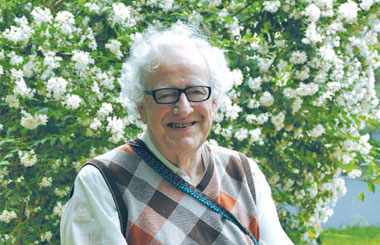Beijing experience in battling air pollution worth sharing: UN report
Updated: 2016-05-25 18:54
(Xinhua)
|
|||||||||
BEIJING -- A UN report lauded Beijing's efforts to battle air pollution but said it needs to do more to meet particulate matter standards.
"A Review of Air Pollution Control in Beijing: 1998-2013" was published by the UN Environment Programme (UNEP), through cooperation with Beijing Municipal Environmental Protection Bureau, the bureau said Wednesday.
In the past 15 years, Beijing's resident population grew by 70 percent, the number of registered vehicles increased by 300 percent and energy consumption rose by 77 percent, UNEP executive director Achim Steiner remarked in the foreword to the report.
"Remarkably, concentrations of key pollutants, such as sulphur dioxide, nitrogen dioxide and inhalable particulate matter, decreased by 78 percent, 24 percent and 43 percent, respectively. Notwithstanding significant challenges, the city improved air quality even as it maintained fast paced growth," he wrote.
"As the capital of the world's most populous country, Beijing's experience in controlling air pollution against a backdrop of rapid expansion is a story that should be shared with other emerging economies and burgeoning cities," he said.
Beijing's solution was a combination of energy structure optimization, coal-fired emission control, vehicle emission control and enhanced air quality monitoring, said He Kebin, director of the Environment College of Tsinghua University and one of the authors of the report.
"The report recognized Beijing's continual efforts to improve air quality. The monitoring data showed that the integrated approaches of legislative, administrative, economic and technical measures have taken effect. In the future, technical measures will be an important measure," He said.
The report also offered some suggestions, including improving city planning; optimizing the layout of city functions; promoting a development plan for Beijing, Tianjin and Hebei; promoting clean energy; in-depth control of coal-fired emissions; and further development of the transit system.
"A Review of Air Pollution Control in Beijing: 1998-2013" was published by the UN Environment Programme (UNEP), through cooperation with Beijing Municipal Environmental Protection Bureau, the bureau said Wednesday.
In the past 15 years, Beijing's resident population grew by 70 percent, the number of registered vehicles increased by 300 percent and energy consumption rose by 77 percent, UNEP executive director Achim Steiner remarked in the foreword to the report.
"Remarkably, concentrations of key pollutants, such as sulphur dioxide, nitrogen dioxide and inhalable particulate matter, decreased by 78 percent, 24 percent and 43 percent, respectively. Notwithstanding significant challenges, the city improved air quality even as it maintained fast paced growth," he wrote.
"As the capital of the world's most populous country, Beijing's experience in controlling air pollution against a backdrop of rapid expansion is a story that should be shared with other emerging economies and burgeoning cities," he said.
Beijing's solution was a combination of energy structure optimization, coal-fired emission control, vehicle emission control and enhanced air quality monitoring, said He Kebin, director of the Environment College of Tsinghua University and one of the authors of the report.
"The report recognized Beijing's continual efforts to improve air quality. The monitoring data showed that the integrated approaches of legislative, administrative, economic and technical measures have taken effect. In the future, technical measures will be an important measure," He said.
The report also offered some suggestions, including improving city planning; optimizing the layout of city functions; promoting a development plan for Beijing, Tianjin and Hebei; promoting clean energy; in-depth control of coal-fired emissions; and further development of the transit system.
Related Stories
Chinese vice premier urges stronger air, water pollution control 2016-05-20 22:38
Cities warm to idea of pollution-free heating 2016-03-18 08:07
Measures for curbing pollution to be fortified 2016-03-14 08:14
Pollution poses threat to cities' water 2016-04-19 07:38
Tianjin introduces new factory pollution charges 2016-05-01 20:08
Today's Top News
Refugees relocated during major police operation
China calls for concerted anti-terror efforts
London's financial centre warns of dangers of Brexit
Russia blasts NATO for Cold War mentality
Vietnam, US adopt statement on partnership
Alibaba expands in Belgium amid protectionism
Eiffel Tower to become rental apartment for first time
Wreckage of crashed EgyptAir plane found at sea
Hot Topics
Lunar probe , China growth forecasts, Emission rules get tougher, China seen through 'colored lens', International board,
Editor's Picks

|

|

|

|

|

|







